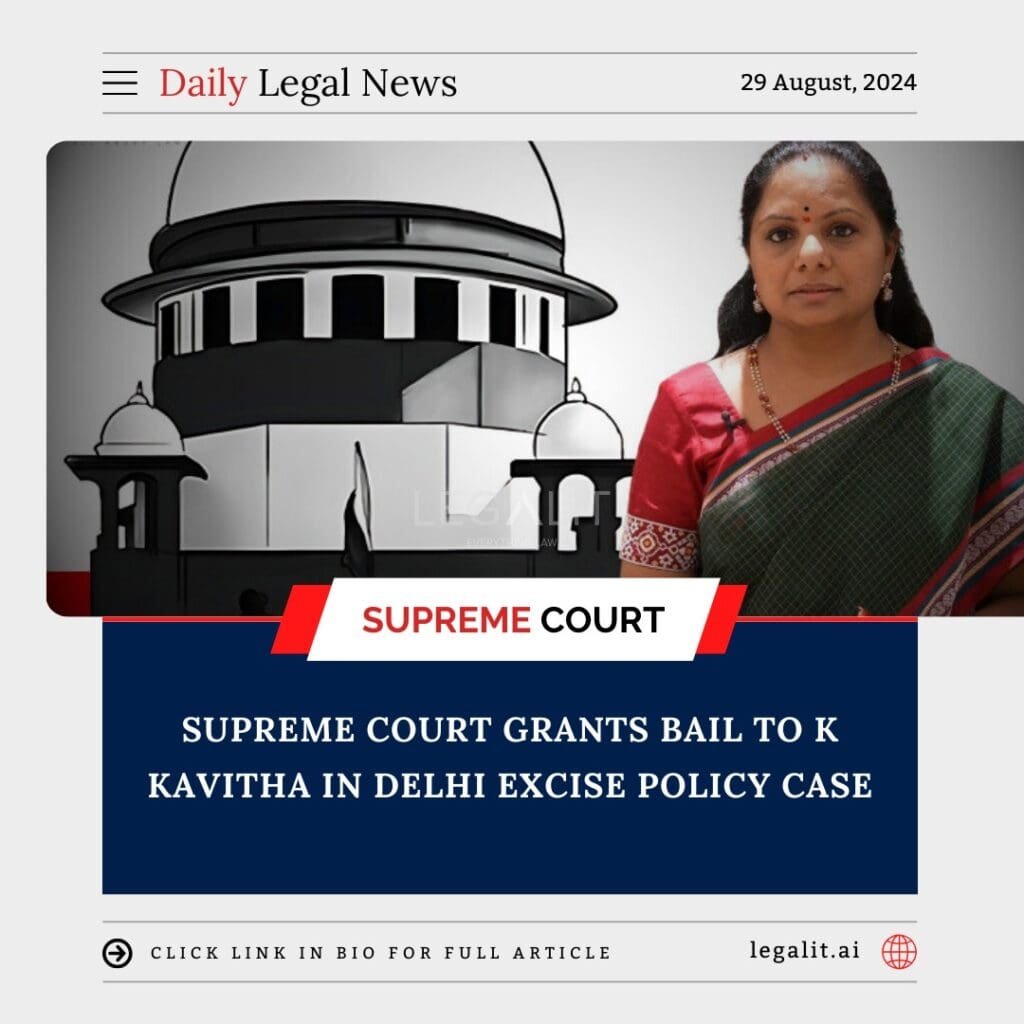
In a significant development, the Supreme Court has granted bail to K Kavitha, a prominent political figure, in connection with the Delhi excise policy case. This decision marks a pivotal moment in the ongoing legal proceedings and highlights the evolving dynamics of high-profile legal battles in India.
Background of the Case:
- Delhi Excise Policy Case:
The Delhi excise policy case revolves around allegations of irregularities and corruption in the implementation of the excise policy in the National Capital Territory of Delhi. The case has attracted considerable attention due to its implications for governance and policy enforcement in one of India’s largest cities. - Accusations Against K Kavitha:
K Kavitha, a member of the prominent political family and a key figure in the political landscape, faced accusations related to her involvement in the alleged irregularities. The charges included accusations of financial misconduct and undue influence in the policy’s execution.
Supreme Court’s Bail Decision:
- Grant of Bail:
The Supreme Court’s decision to grant bail to K Kavitha is a significant legal development. Bail in high-profile cases often comes after rigorous scrutiny of the evidence and legal arguments presented by both the defense and the prosecution. The court’s decision reflects its assessment of the legal merits of the case and the conditions under which bail is granted. - Conditions of Bail:
While the specifics of the bail conditions were not detailed in the decision, it is typical for such conditions to include restrictions on travel, regular reporting to authorities, and compliance with legal proceedings. These conditions are designed to ensure that the accused remains available for trial and does not interfere with the ongoing investigation.
Implications of the Bail Decision:
- Legal Ramifications:
The grant of bail does not signify a resolution of the case but allows K Kavitha to remain free while the legal proceedings continue. The case will proceed through the judicial system, and the bail decision will not preclude further legal action or impact the final outcome of the trial. - Political and Public Reaction:
The bail decision is likely to influence public opinion and political dynamics. High-profile cases often garner significant media attention and public interest, which can impact the broader political landscape and public perceptions of the individuals involved. - Future Proceedings:
The case will continue to unfold as the legal process moves forward. The Supreme Court’s bail decision allows for the continuation of legal proceedings, including the presentation of evidence, cross-examination of witnesses, and legal arguments from both sides.
Conclusion:
The Supreme Court’s decision to grant bail to K Kavitha in the Delhi excise policy case represents a crucial juncture in a high-profile legal battle. While the bail decision provides temporary relief to the accused, the case remains active, and the judicial process will continue to address the allegations and evidence presented. The outcome of the case will have implications for legal precedents, political dynamics, and public perception, underscoring the importance of a fair and thorough legal process.